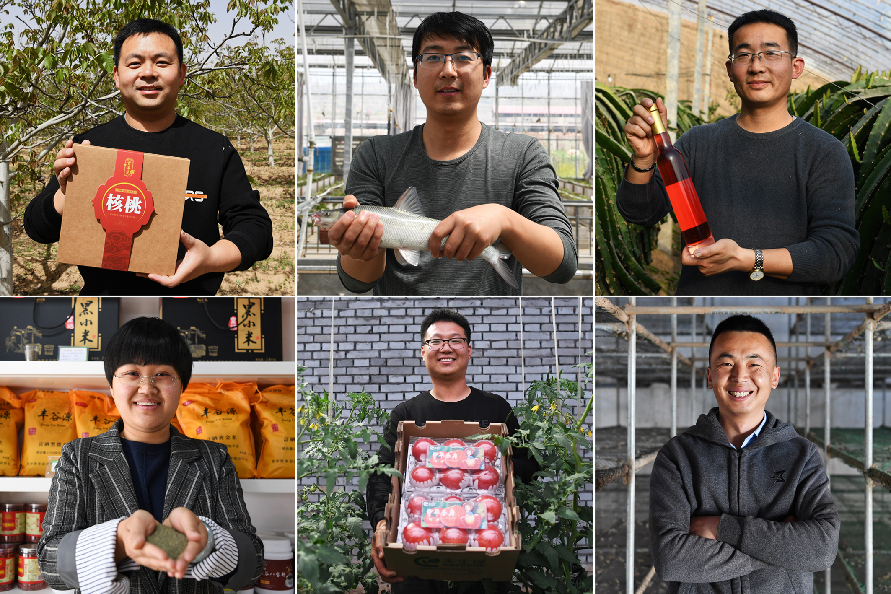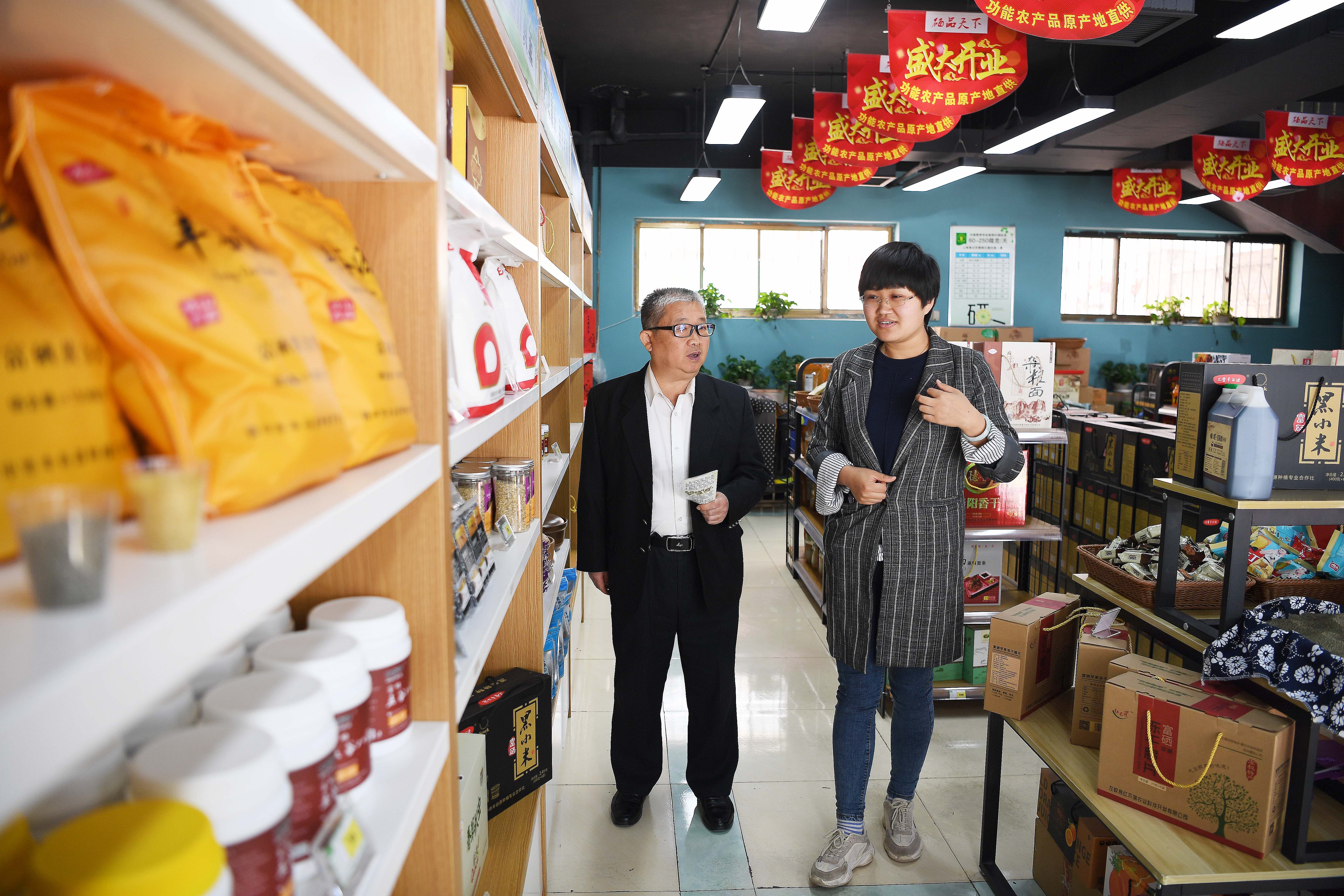
Young farmers and their agricultural products, northern China's Shanxi Province, July 18, 2019. (Xinhua/Yang Chenguang)
TAIYUAN, July 18 (Xinhua) -- With banana, pitaya and papaya fruit dangling in the air, Li Fuchun's orchard on the Loess Plateau in northern China gives off a rather tropical vibe.
In the past, tropical fruits were transported for thousands of kilometers from southern China to Shanxi Province where Li's orchard is based, often arriving less than fresh. To have more fresh such fruits, Li, 38, set out to explore techniques to grow them locally five years ago.
Today, Li's greenhouse attracts many tourists, who pack the orchard to enjoy a new experience of picking tropical fruits themselves.
The unconventional farming that Li pioneered in Yangliang Village in the city of Jinzhong has expanded to 26 other bases across the province.

Li Fuchun prune branches in his orchard on the Loess Plateau in northern China's Shanxi Province, July 18, 2019. (Xinhua/Yang Chenguang)
In recent years, more young people like Li have become engaged in farming, gradually changing the landscape in more ways than one.
China has an aging farming population. Observations carried out by the Ministry of Agriculture and Rural Affairs on more than 20,000 rural families have concluded that the average age of China's front-line agricultural labor force is somewhere around 53, with those above 60 accounting for more than 25 percent.
However, more educated young people are joining the sector with new technologies and business models. Many equip their farms with drones, sensors and automated machinery, and market their products through various online platforms.
A survey by the ministry found that in 2017 the number of so-called "new farmers" -- those under the age of 45, or with a high-school degree or above -- rocketed more than 6 million to reach 15 million.
"We generally have a broader horizon, team spirit, and most importantly, great expectations for the future of villages and farming," said Li, who established the Young Famer's Association in Yangliang.
Li obtained an architectural engineering degree from a Beijing-based university, worked in the coastal province of Guangdong for a few years before returning to his hometown in 2014.
Li and several other young people in the village set up the association in August 2018, mainly for spotting new business opportunities and supporting each other.
Hao Weifang, who gave up his urban life due to health reasons, is a member of the association. "I had a big learning curve when I first started selling agricultural products," said Hao, a former hotel manager. "The association members helped me find the right way to package and market my produce."
Hao ended up opening both online and offline stores for selling selenium-rich rice, which, considered healthier, fetches a premium price about five times that of regular rice.

Hao Weifang's newly opened selenium-rich rice offline store, northern China's Shanxi Province, July 18, 2019. (Xinhua/Yang Chenguang)
With the rapid growth of disposable personal income, more and more Chinese consumers prefer superior quality, premium products, and are increasingly willing to spend money on them, according to a recent survey by data analytics firm Nielsen.
For Hao, that means marketing has become even more important. "Farmers can always grow more, the problem is whether they can sell them," she said. "And in marketing, young farmers have advantages."
With more college graduates joining in, the association now has over 60 members.
"The young farmers are setting examples for traditional farmers, they help create jobs and help other traditional farmers become wealthier," said Wu Jianlin, head of the agricultural and rural affairs office in Jinzhong city.
The local government offers subsidies for young farmers who return home to start a business. In Li's case, he received around 200,000 yuan (about 29,000 U.S. dollars) in subsidies.
Li said he plans to make his tropical garden a base for science popularization by organizing school field trips to his gardens and helping local children learn more about agriculture and nature.
"Now I spend most of my days in the orchard. I think I have become more assured about what I want than back in the city," Li said.



